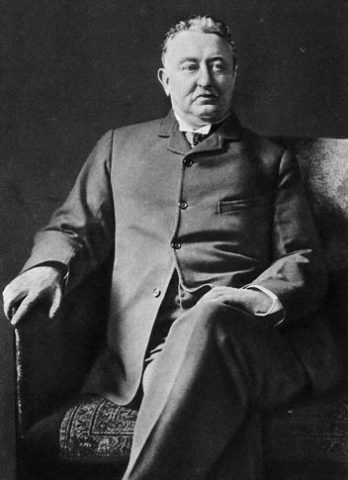
Shortly before the opening of the 1995 United Nations World Summit on Social Development in Copenhagen, Denmark, the Commission on Global Governance issued its much-heralded report, Our Global Neighborhood, which was presented as a guiding star to the summit. In the foreword to the report, written by Commission co-chairmen Ingvar Carlson, former socialist president of Sweden, and Shridath Ramphal, former president of the World Conservation Union, we are assured that the Commission on Global Governance is not advocating world government. “The development of global governance is part of the evolution of human efforts to organize life on the planet,” write the co-chairmen. “As this report makes clear, global governance is not global government. No misunderstanding should arise from the similarity of terms. We are not proposing movement towards world government….”
What It Is
However, one need only recur to a standard dictionary to glimpse the semantic sleight of hand at work here. Webster’s New Collegiate Dictionary gives but a one-word definition for “governance,” and that is “government.” And world government is precisely what the Commission on Global Governance is proposing. That is plainly evident on the face of their proposals, all of which invariably advocate increasing strictures on national sovereignty and the transferring of legislative, executive, and judicial powers to the United Nations or its subsidiary multilateral institutions — always in the name of peacekeeping, nationbuilding, saving the environment, helping the poor, disarmament, fighting organized crime, etc.
“There should be no question of which way we go,” assert Carlson and Ramphal. “But the right way requires the assertion of the values of internationalism, the primacy of the rule of law worldwide….” Ah yes, the “rule of law.” Favorite weasel words of globalists seeking to conceal their true world-government ambitions. Obviously, it takes government to promulgate law, and for that law to have any meaning and effect, it must be backed up by government force. Genuine world law requires real world government force capable of overwhelming any national resistance to its rule. That is elementary and indisputable.
A major problem we face today is that most one-worlders avoid explicit references and paeans to world government: It is viewed as counterproductive “because it frightens people.” So admits former Senator Alan Cranston (D-CA), a former national president of the United World Federalists and a member of the Council on Foreign Relations (CFR) and the Trilateral Commission (TC). Back in 1949 Cranston successfully pushed through the California legislature a resolution memorializing Congress to call a national convention to amend the U.S. Constitution to “expedite and insure the participation of the United States in a world federal government.” He still wants the same thing; he just knows he has a better chance of obtaining it if he goes about it quietly and calls it by another name.
Cranston says he remains a World Federalist because “I believe deeply in the need for world law….. I believe in the concept of federalism on the world scale.” But, said Cranston in an interview in the April 1976 issue of Transition, a publication of the Institute for World Order, “the more talk about world government, the less chance of achieving it, because it frightens people who would accept the concept of world law.” Obviously, he understands that a lot of folks still have a strong suspicion of and aversion to big government. And a world government is about as big as government can get.
Like Mr. Cranston, Messrs. Carlson and Ramphal are longtime advocates of socialist world government. They note in Our Global Neighborhood, “It was Willy Brandt who brought the two of us together as co-chairmen of the Commission on Global Governance.” The late Willy Brandt was at the time (and for many years before) the president of the Socialist International, and Mr. Carlson was a vice president of the same socialist-world-government-advocating group.
The Rhodes Vision
The necessity of world government is, of course, a fundamental tenet of the communists as well. Addressing the 1920 Congress of the Communist International, Lenin stated: “This task is the task of the world proletarian revolution, the task of the creation of the world Soviet republic.” The official “Program of the Communist International” adopted in 1928 called for “a World Union of Soviet Socialist Republics uniting the whole of mankind under the hegemony of the international proletariat organized as a state.”
Odd as it may seem to the uninitiated, the communists and socialists have been aided and abetted toward this goal by organizations founded and funded by some of the world’s wealthiest capitalists. Cecil Rhodes’ biographer Sarah G. Millin wrote of that South African diamond and gold mogul, “The government of the world was Rhodes’ simple desire.” And to fulfill that desire, he established, in 1891, a “secret society” (the words are his) called the “Society of the Elect.” In his first will (1877) he explained that his plan for world dominion must entail “the foundation of so great a power as to hereafter render wars impossible.” In establishing this “power,” Rhodes wrote to his associate William Stead, “The only feasible [way] to carry this idea out is a secret [society] gradually absorbing the wealth of the world to be devoted to such an object.”
Toward accomplishing this grandiose goal, which Rhodes frankly described as “a scheme to take the government of the whole world,” a system of sister organizations was established, the most prominent being the Royal Institute of International Affairs (RIIA) in England and the CFR in the United States. These groups have drawn into Rhodes’ “scheme” some of the most influential men from the fields of finance, industry, politics, communications, academe, science, and philanthropy.
Throughout this century, these internationalist schemers have worked hand in hand with (usually while publicly denouncing) communists, socialists, and fascists of every stripe. Which is not surprising, since, while a student at Oxford, Rhodes had become (and remained until his death) a fervent disciple of Professor John Ruskin, a revolutionary utopian socialist. (Ruskin wrote that “indeed, I am myself a communist of the old school — reddest also of the red.”)
Education for the Elite
One of the important instruments Rhodes created to implement his breathtaking global “vision” was the Rhodes Scholarships, through which (said Stead) he intended his network would help into influential positions thousands of “men in the prime of life scattered all over the world, each one of whom, moreover, would have been specifically — mathematically — selected toward the Founder’s purposes.” And what qualities would be demanded of these men? According to Rhodes: “smugness, brutality, unctuous rectitude, and tact.”
One young American who apparently exhibited those desired attributes was Strobe Talbott, now special adviser to President Clinton on Russian affairs. A Clinton roommate and fellow Rhodes Scholar at Oxford, Talbott (CFR, TC) provided critical support for the Clinton campaign at Time magazine, where he was editor-at-large. He also provided heavy support for the RIIA/CFR/TC drive for world government. Declared Talbott in a May 1992 Time piece: “The U.N. as a whole needs more power and resources for peacekeeping, including an ability to call on American troops to serve under the world body’s flag.” In a July 20, 1992 paean to one-worldism in Time entitled, “The Birth of the Global Nation,” he proclaimed that “it has taken the events in our own wondrous and terrible century to clinch the case for world government.”
For this outburst of internationalist ardor, Talbott received the Norman Cousins Global Governance Award from the World Federalist Association (WFA, the renamed United World Federalists). At the award ceremony on June 24, 1993, WFA President John Anderson (CFR, TC) read a letter from Bill Clinton (CFR, TC) noting that “Norman Cousins worked for world peace and world government” and stating that Talbott “will be a worthy recipient of the Norman Cousins Global Governance Award. Best wishes … for future success.”
Yes, the President of the United States, a “Rhodes man,” was praising the WFA and its most famous leader (Cousins), and wishing “success” for the treasonous decades-long campaign to destroy America’s national sovereignty and submerge us in a world government.
In 1961, another internationalist President, John F. Kennedy, presented to the United Nations his plan (which was actually crafted by his CFR-dominated State Department, run by CFR one-worlder Dean Rusk) for disarming America, entitled Freedom From War: The United States Program for General and Complete Disarmament in a Peaceful World. That program called for “progressive controlled disarmament … to a point where no state would have the military power to challenge the progressively strengthened U.N. Peace Force.” In other words, the President of the United States, who had taken an oath to uphold and defend this country and its constitutional government, proposed to transfer all U.S. armaments to the UN and then subject America to an all-powerful world government under the UN. This treasonous objective was made even more unmistakably clear a few months later, in 1962, when Freedom From War was superceded by a similar disarmament document entitled Blueprint for the Peace Race. This policy of disarmament has remained the official policy of the U.S. government through both Democratic and Republican administrations and has been incorporated piecemeal into subsequent disarmament agreements.
Eroding Our Sovereignty
In 1974, the Rhodes Scholar who is now President Clinton’s Ambassador to Spain, Richard N. Gardner (CFR, TC), penned a signal article in the CFR journal Foreign Affairs entitled “The Hard Road to World Order.” Since hopes for “instant world government” had proven illusory, he noted that the best hope for building “the house of world order” lay in a long-range “end run around national sovereignty, eroding it piece by piece.” This could best be done, he noted, on an ad hoc basis with treaties and international “arrangements” — on environment, trade, security, etc. — that could later be brought within “the central institutions of the U.N. system.” This is what Our Global Neighborhood calls “the hardening of so-called soft law.” These treaties, which initially appear soft and non-threatening, are gradually given “teeth” to rend national sovereignty asunder.
Rather than speak openly of world government, the globalists more frequently employ code terms such as “world order,” “world law,” “global transformation,” “interdependence,” “convergence,” “economic integration,” “multilateral institution building,” “global community,” “collective security,” etc. But there is no mistaking the fact that the intent is to do away with the United States.
During the first half of this century, prominent advocates of global governance — socialists, communists, and capitalist internationalists — wore their colors more openly than their successors of today. Many volumes on world government by these political, business, and academic figures of yesteryear can be found in major libraries. There, too, will be found a multitude of volumes of more recent vintage on “world order” and related code themes.
In 1976, Professor Saul Mendlovitz (CFR), director of the World Order Models Project (WOMP), prophesied that there “is no longer a question of whether or not there will be world government by the year 2000.” We are fast approaching that millennial milestone, and unless sufficient numbers of Americans become aware of the planned destruction that faces us and actively join the freedom fight, the forces of “smugness and brutality” (and utter ruthlessness), as exemplified by Rhodes, Mendlovitz, Talbott, Clinton, et al., will triumph.



